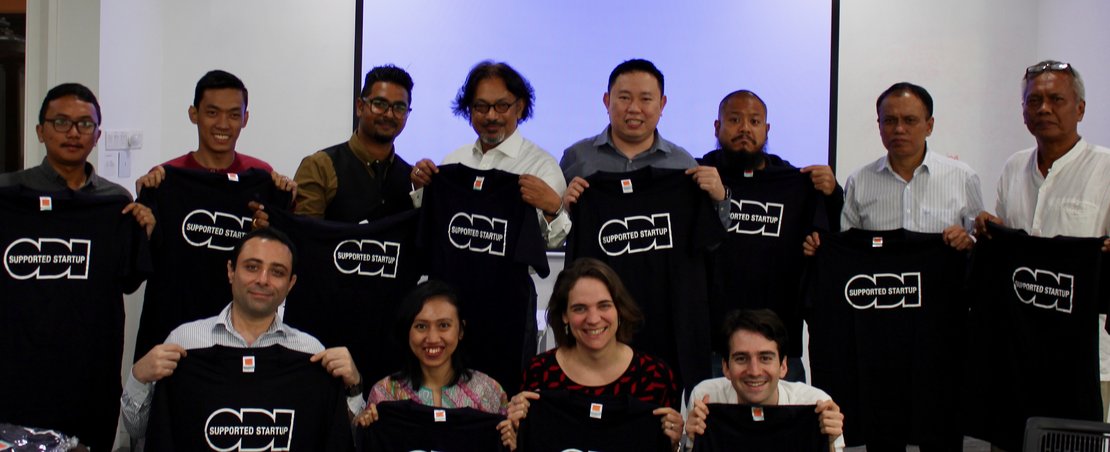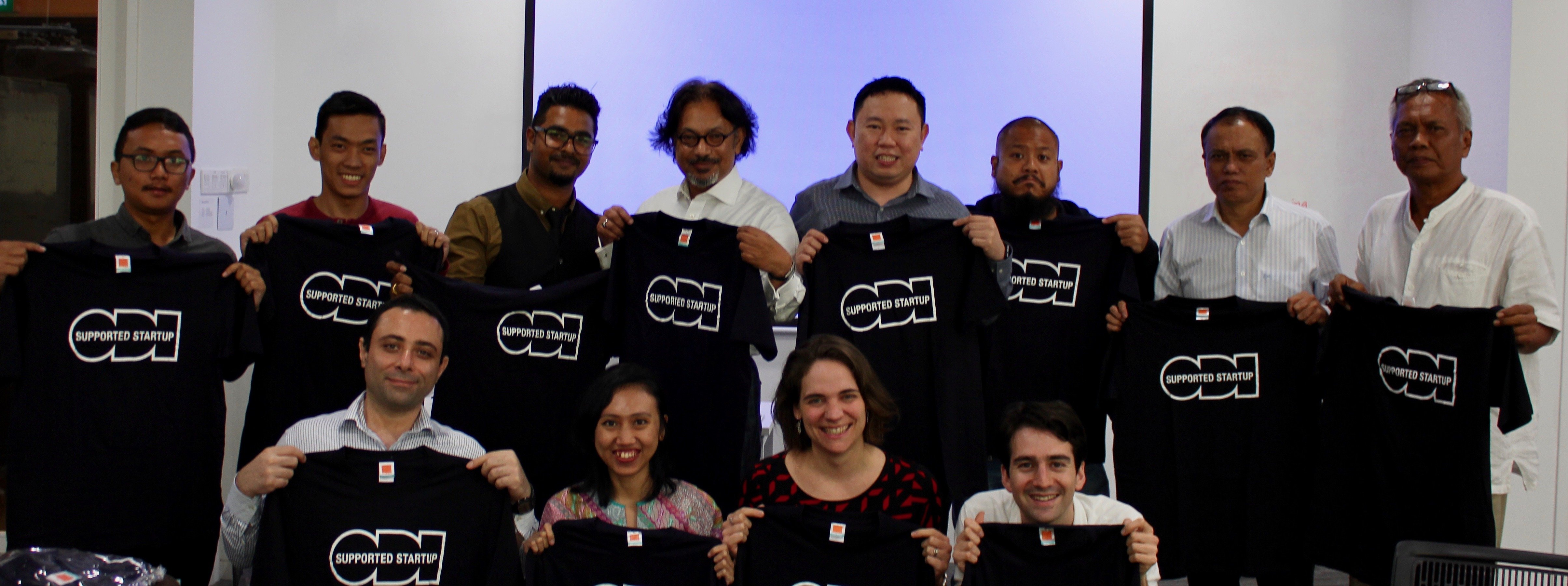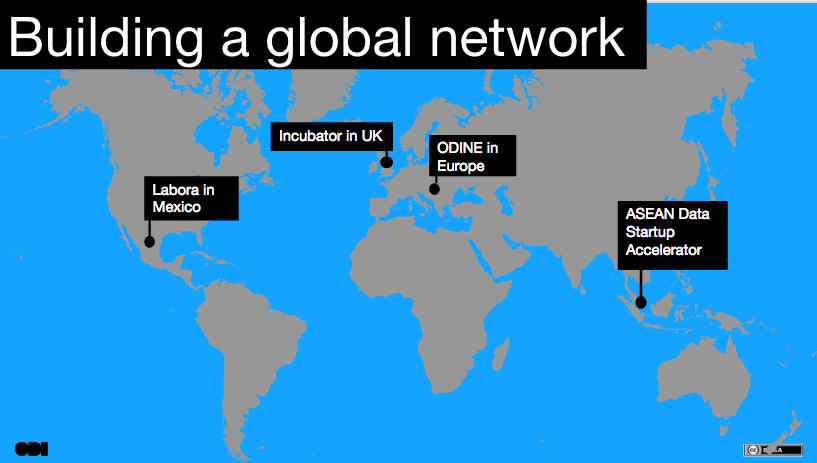

Last week, we welcomed eight data-driven startups into their new home in a high-rise in Bangsar, a centre of new development and hipster cafes in Kuala Lumpur.
They represent the first cohort of the ASEAN Data Startup Accelerator, a programme for startups in the ASEAN region to develop their business skills, their data skills and their networks, funded by Malaysia’s Digital Economy Corporation and forming part of the ASEAN Data Analytics Exchange.
An idea devised by Dr Karl Ng and Richard Stirling, the centre is the fourth international startup programme that the ODI leads or supports. Uniquely, it is being run by the ODI’s first hire based outside London: Divakar Subramanian in Kuala Lumpur.
Divakar comes from a business-development background. Specialising in early-stage businesses, he worked most recently as Business Development Manager at Neeuro. Divakar brings experience in sales, market penetration, marketing strategy, account management, product development and commercialisation, and is determined to help startups of ADSA to achieve their objectives.
He has worked with Tom Hunter at ODI HQ to build an intensive programme for the startups, including two days last week in the Malaysian jungle building rafts, rafting as a team, trekking and cooking for survival as they got to know each other.
Like other startups supported by the ODI – in the ODI’s own programme in London and Leeds, the Open Data Incubator for Europe and Labora in Mexico City – the startups in ADSA represent varied sectors: agriculture, financial services, the internet of things and future cities. What they have in common is finding new ways to use data to create social and economic value.
To name just a few: CropBase works to encourage the use of alternative crops by combining data from scientists and from local farmers to increase diversity in the global food supply. Katsana encourages safer driving by using sensors in cars to monitor driver patterns, providing feedback both to fleet companies and to drivers themselves. Urbanetic brings together data to support more sophisticated city planning. And we also look forward to helping companies develop great ideas. BTI credit scoring, for example, is working to build a system to help the bottom 40% of citizens receive a credit score using existing data in new ways.
Linking together international startup hubs takes a lot of planning and timezone coordination, and some seriously inconvenient flying. (My own lesson from last weekend was to avoid travelling from Mexico City to Kuala Lumpur on a strict time limit.) But the ODI believes there are enormous potential benefits from connecting international companies with business models that depend on data.

Last week, we welcomed eight data-driven startups into their new home in a high-rise in Bangsar, a centre of new development and hipster cafes in Kuala Lumpur.
They represent the first cohort of the ASEAN Data Startup Accelerator, a programme for startups in the ASEAN region to develop their business skills, their data skills and their networks, funded by Malaysia’s Digital Economy Corporation and forming part of the ASEAN Data Analytics Exchange.
An idea devised by Dr Karl Ng and Richard Stirling, the centre is the fourth international startup programme that the ODI leads or supports. Uniquely, it is being run by the ODI’s first hire based outside London: Divakar Subramanian in Kuala Lumpur.
Divakar comes from a business-development background. Specialising in early-stage businesses, he worked most recently as Business Development Manager at Neeuro. Divakar brings experience in sales, market penetration, marketing strategy, account management, product development and commercialisation, and is determined to help startups of ADSA to achieve their objectives.
He has worked with Tom Hunter at ODI HQ to build an intensive programme for the startups, including two days last week in the Malaysian jungle building rafts, rafting as a team, trekking and cooking for survival as they got to know each other.
Like other startups supported by the ODI – in the ODI’s own programme in London and Leeds, the Open Data Incubator for Europe and Labora in Mexico City – the startups in ADSA represent varied sectors: agriculture, financial services, the internet of things and future cities. What they have in common is finding new ways to use data to create social and economic value.
To name just a few: CropBase works to encourage the use of alternative crops by combining data from scientists and from local farmers to increase diversity in the global food supply. Katsana encourages safer driving by using sensors in cars to monitor driver patterns, providing feedback both to fleet companies and to drivers themselves. Urbanetic brings together data to support more sophisticated city planning. And we also look forward to helping companies develop great ideas. BTI credit scoring, for example, is working to build a system to help the bottom 40% of citizens receive a credit score using existing data in new ways.
Linking together international startup hubs takes a lot of planning and timezone coordination, and some seriously inconvenient flying. (My own lesson from last weekend was to avoid travelling from Mexico City to Kuala Lumpur on a strict time limit.) But the ODI believes there are enormous potential benefits from connecting international companies with business models that depend on data.